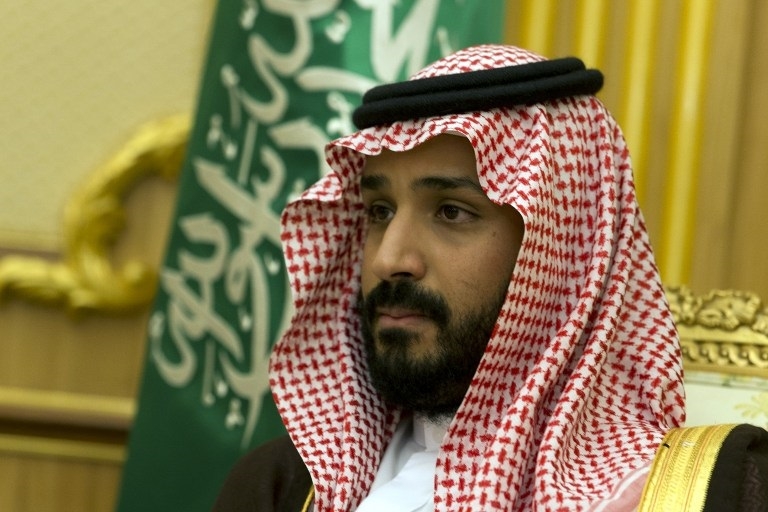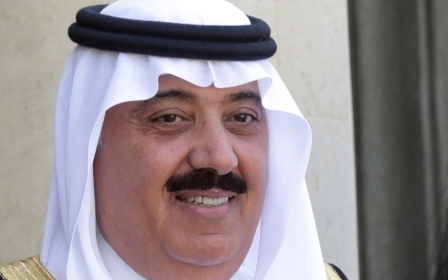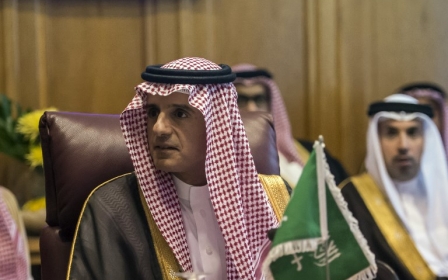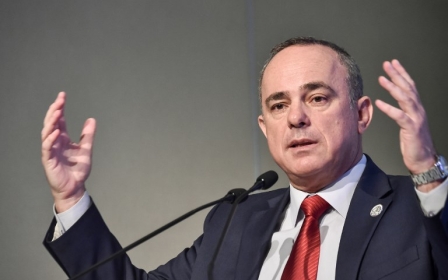Former UK ambassador praises Saudi 'reforms' as torture allegations mount

The former UK ambassador to Saudi Arabia, John Jenkins, has praised Saudi Crown Prince Mohammed Bin Salman's latest attempts to diversify the Gulf kingdom's oil-dependent economy.
Speaking at the Policy Exchange Think Tank in London on Monday evening, Jenkins emphasised the urgency of Bin Salman's reforms and how crucial they are to the UK's strategic interests.
"We should bear in mind that the reform programme Prince Mohammed bin Salman has promoted in Saudi Arabia is precisely the sort of socio-economic reform we have consistently urged upon the Kingdom," said Jenkins during his speech on Monday.
"Its success matters to us more than ever: failure is not an option."
His praise comes amid widespread concern over Bin Salman's purge, which has led to accusations of torture and the imprisonment of several Saudi princes and prominent businessmen.
Last week, US diplomats and a Saudi doctor reported that at least 17 people needed hospital treatment after enduring severe beatings during the crackdown on alleged corruption.
Since the arrests, many commentators - even those fiercely critical of the way it's been conducted - have acknowledged the need for economic reforms, but have questioned whether the campaign is only about curbing corruption and if it will actually solve the country's economic woes.
"He is in a desperate situation. He needs wealth because of the declining oil prices, in addition to his regional wars that he's been launching," Dr Madawi al-Rasheed, a visiting professor at the Middle East Centre at LSE, said at a conference in London on Saudi Arabia hosted by Middle East Monitor (MEMO) on Saturday. "These reforms are an important step to being popular in society and appeal to a wider economic audience.
"To those of you who are journalists, before you hail these reforms as the greatest in Saudi history, please stop and think about the context in which these purges are taking place. His moves have become counter-productive. People who were previously interested in his investments are now having second thoughts."
Author of Muslim Brotherhood report
Jenkins, who co-authored the UK government's report into the Muslim Brotherhood, also used his speech to criticise the political movement.
"The Muslim Brotherhood gives little space to the tolerance, choice and individual freedoms we claim to value. It has no commitment to democratic choice as the fundamental expression of a political community," the former diplomat said.
Released in 2016, the Jenkins report did not find direct links between the UK Brotherhood and "radical" Islam but said that membership could be a “possible indicator of extremism” and that the group had been a “rite of passage” to violence for some members.
Experts, however, told the UK parliamentary foreign affairs committee last year that the report over-emphasised the group's links to violence.
Critics of the report also accused Britain of conducting the investigation under pressure from Gulf allies.
That concern was heightened when documents emerged that the UAE has threatened to cut lucrative arms deals with the UK, stop inward investment and cut intelligence cooperation if former UK prime minister David Cameron did not act against the Muslim Brotherhood.
He also framed the current diplomatic crisis in the Gulf between Saudi Arabia and Qatar as being more than a "clash of egos".
"The crisis arises out of the logic of five decades of Gulf socio-economic development, the evolution of different politically legitimating discourses and the urgent challenge of all varieties of political Islamism."
The report into the Muslim Brotherhood, which Jenkins co-authored, over-emphasised the group's connection to violence, and at times lacked nuance, according to experts who spoke last year to the UK's parliamentary foreign affairs committee.
Jenkins served as the UK ambassador to Saudi Arabia until 2015 after he finished his posting in Libya following Muammar Gaddafi's removal from power.
Prior to his posting in Tripoli, however, Jenkins served as the UK's ambassador to Iraq.
Before his departure from the UK Foreign and Commonwealth office, Jenkin was the FCO's senior Arabist.
New MEE newsletter: Jerusalem Dispatch
Sign up to get the latest insights and analysis on Israel-Palestine, alongside Turkey Unpacked and other MEE newsletters
Middle East Eye delivers independent and unrivalled coverage and analysis of the Middle East, North Africa and beyond. To learn more about republishing this content and the associated fees, please fill out this form. More about MEE can be found here.




